- Home
- Philip Pullman
Daemon Voices Page 39
Daemon Voices Read online
Page 39
But this way of labelling ourselves by our religion is a new thing, and it worries me because it ties in with the third straw in the wind, which is the Serious and Organised Crime and Police Bill. This is the “incitement to religious hatred” law. It’s intended to protect people from being exposed to hatred or contempt because of their religion.
The ostensible cause for it was the practice of loathsome people such as the British National Party to avoid being criticised for making racist statements, which are illegal, by making religious ones instead: they don’t say, “Kick out the filthy Asians,” they say, “Islam is an evil religion,” and their horrible followers know they mean “Kick out the filthy Asians.”
As I say, that was the ostensible cause. A cynic might say that the real cause was the Labour Party’s desire to regain the Muslim vote, which they used to be able to rely on, but which has been leaking away alarmingly. But whatever the cause, the result will be that people who identify themselves by their religion will be able to claim that anyone who criticises their beliefs is exposing them personally to hatred and contempt, because their religion is their identity.
This Bill has been widely and strongly criticised by those who care about freedom of speech. The Prime Minister has said that actually it won’t be any threat to free speech, because in practice every complaint will come before the Crown Prosecution Service, and in most cases they won’t prosecute. In fact, that will just make things worse. People will be invited to feel aggrieved by the invention of an offence that didn’t exist before, and then denied the likelihood of satisfaction through the courts. Are the zealots going to say, “Oh well, fair enough, we tried”? Are they hell.
So to ward off trouble before it begins, theatres and publishers will turn more and more to lawyers. A local authority that licenses and subsidises a theatre will insist on a legal opinion before they let a new play go on; a publisher with a risky novel will have it read by my learned friends; and of course they will advise against the risk, because—as the Home Office minister Hazel Blears (who held this post during 2003–2006) has said—if such a case comes to court, “It is difficult for me to say what a court would decide in those circumstances.” They won’t take the risk; and books or plays that question or criticise religious belief will quietly vanish from sight.
And in case anyone thinks I’m exclusively criticising Muslims here, there’s a new group called Christian Voice of which you might have heard. They were the people who demonstrated against the broadcast of Jerry Springer, the Opera on BBC, and disseminated the private phone numbers and addresses of BBC staff so they could be harassed at home. Only last week these champions of Christian virtue triumphantly announced that they had bullied a cancer charity into turning down the money raised during a benefit performance of that show, because it was “tainted.” Well, of course they have the right to be heard; but when this law comes in, obnoxiously superstitious and self-righteous people like them will have the right to stop opinions they don’t like from being heard.
So the cultural current I’ve called theocratic absolutism is alive and well and beginning to stir, and if we’re not careful it could easily sweep away a basic and priceless freedom. And we would be very foolish to think that this couldn’t happen here: it has happened here. Only a hundred and fifty years before Miss Goddard exhibited her lustre and effect on the stage of the great school of morals, the Puritan revolution closed the theatres down entirely.
Before I go on, and before we lose sight of what I mean by the school of morals, just to re-state it: it’s the assumption that stories, in whatever form they come—drama, the novel, fairy tales, films—show us human beings like ourselves acting in recognisably human ways, and they affect our emotions and our intelligence as life itself affects us; that the stories we call the greatest are great because they are most like life, and the ones we think not so good are correspondingly less so—the characters in one are rich and complex and unpredictable, like real people; those in the other are two-dimensional and cardboard-like, stereotypes—that sort of thing. And our moral understanding is deepened and enriched by the awakening of our imaginative sympathy. I gave the example of Macbeth and murder earlier on: there’s no need to list the great works that draw us in, imaginatively, into the experience of jealousy, or sexual obsession, or the lifelong consequences of a moment of thoughtless cowardice, or the folly of putting high-minded principle before human affection—and so on, and so on, and so on.
Now I can’t prove this numerically. I can’t show you statistics to demonstrate a twenty-three per cent increase in moral awareness among twelve-to-fourteen-year-olds who have been exposed to fiction as opposed to those who have been kept without it; I can’t point to studies demonstrating that murderers who have read Dostoevsky go about their business more thoughtfully than murderers who haven’t; I can’t quote official reports on the decline in adultery among reading groups discussing Anna Karenina. I don’t think that’s the way it works. I think the moral education that stories provide is a more subtle, fluid, all-pervasive thing, without a precise one-to-one correspondence in any place, and that it often works most effectively when it doesn’t seem to be taking place at all.
As I say, there is no one-to-one correspondence. But here is an account by a Welsh miner called Robert Morgan about two friends of his, a collier and an engine driver, who, having educated themselves, did their best to awaken their friends to the delights of literature and music:
“At such times we did not feel we were colliers doing menial and dangerous jobs in the bowels of the earth, but privileged human beings doing something extraordinary. Most of us were badly or barely educated, but such young men as Ted and Jeff who, alone and without encouragement, educated themselves…seemed to glow with pride. The work they were engaged in, lowly as it was, never depressed them. They neither grumbled about the work they did, nor did they envy others in better positions on the surface of the pit. These characteristics I noticed about men such as Ted and Jeff, and from the examples of such men I was able to develop my own pride, my own search for knowledge…These two characters, their attitudes, their personalities, their cheerfulness, their honesty and their kindness, I am sure made the rest of us feel that culture had done much to make them better men.”
That was quoted in Jonathan Rose’s extraordinary work The Intellectual Life of the British Working Classes (2001), which I recommend without reservation. Perhaps the only evidence for the existence of the “school of morals” is anecdotal, but it’s powerful; and there’s a lot of it.
However, if you remember, I said earlier on that before I finished I’d come back to theory. I showed it out of the door, but here it is seeping up through the floorboards.
Because haven’t I made a basic mistake early on in this approach? Isn’t what I’ve been talking about not so much a school of morals as a school of manners? Robert Morgan’s account of Ted and Jeff seems to be a description of good behaviour as much as of goodness; and as for Emma’s cruelty to Miss Bates—wasn’t that just a failure of politeness? Is this morality I’ve been talking about really little more than a matter of etiquette? And isn’t that in turn a means of reinforcing the dominance of one social class, which knows how to behave, over another that doesn’t?
Let’s go back to Miss Goddard for a moment, and consider the audience in the great School of Morals, the Theatre. The sort of moral views that might be inculcated or polished there would be those that everyone who could pay for a ticket—everyone with a stake in society, the local clergy, the local gentry, the Lord Mayor and the prosperous citizens of Norwich—would share and approve of. Any moral views at variance with the inevitably conservative consensus wouldn’t last long on the stage, full stop.
Then there’s the fact that moral views change with time: they aren’t eternal. If Miss Goddard’s audiences could see our society today, they would be shocked at some things that we take for granted: the acceptability of se
xual freedom, for example, and the frequency with which, these days, people bear and bring up children outside marriage without social disapproval. And the patrons of the Theatre Royal in 1801 would have viewed with incredulity the fervour—the moral fervour—that characterised the recent debate about fox-hunting. To spend 250 hours of Parliamentary time on this subject would have seemed to them insane; they would have thought our society was morally deranged.
Then there’s the difference between this culture, ours—the Western liberal humane culture that has created all the literature I’ve mentioned so far—and the other cultures that exist in the world today. What does the world of the secular European intellectual have in common with the world of the mullahs and the ayatollahs? Are the moral teachings of one kind of literature universally valid, or are they contingent on culture? What do the novels of Thomas Hardy, what does the world of a poor shepherd in Dorset have in common with that of a poor black youth in Detroit? Does the word poor mean anything like the same thing in both contexts?
And as for the implication that Jane Austen’s novels did not carry a political message—well, post-colonial theory has helped us see that her work is saturated in political meanings and assumptions. Take the most famous example, Mansfield Park. Where does Sir Thomas Bertram’s money come from? What is the source of the wealth that underpins the leisured way of life of these people who are so high-minded that they can fall into agonies of doubt and guilt over whether it’s okay to indulge in amateur theatricals during their father’s absence? The answer involves slavery. Sir Thomas is away in Antigua inspecting his plantations. And that fact, never questioned or examined in the novel, throws a different sort of light on the exquisite moral refinement of the protagonists.
So I don’t think the discoveries of literary theory are easily dismissed. There are things it tells us that are true and helpful, and others that are discouraging and deceptive, and we need to tell the difference.
To sum up the argument then, between what I’ve called the school of morals, and theocratic absolutism: that latter tendency in cultural life says that meanings are fixed and simple and determined by authority; whereas the school of morals sees them as ambiguous, complex, subject to development, and arrived at by experience and by imaginative sympathy.
As for the argument that the school of morals has with “theory”: theory says that truth is provisional and there is no such thing as human nature, that meanings shift and are contingent; whereas the school of morals says that there are some truths that endure long enough to be as good as permanent, and that human nature is certainly constant enough to be worth talking about—that even if we and the people of 1801 disagree about whether fox-hunting is good or bad, we would certainly agree that there are good things and bad things, that generosity is good and meanness is bad, that children should be looked after, that there is such a thing as empathy, that there are ways of dealing with conflict and disagreement, and so on, and so on.
Furthermore, the “theory” line on language, that it’s constitutive and not transparent, not only undercuts the responsibility of the writer; it contradicts the experience of the reader. That’s just not what it feels like when we read. We feel fond of this character, we feel exasperated with that one; we feel pity for their predicaments, we cheer when they overcome them. Of course George Orwell was right when he wanted his prose to be a window through which we see and not a surface on which meanings contradict themselves in an endlessly playful dialectic.
But it’s time I said something about how I think the school of morals actually works.
Well, the reading we do in the school of morals isn’t like taking notes in a lesson, learning the correct line and parroting it back: it’s like a conversation. There’s a democracy about it. The book proposes, the reader questions; the book responds, the reader considers. We bring our own preconceptions and expectations, our own intellectual qualities, and our limitations too, our own previous experiences of reading, our own temperament, to the encounter.
And we are active about the process. The school of morals doesn’t force us to read in a way determined by someone else—even by the author. We can skim, or we can read it slowly; we can read every word, or we can skip long passages; we can read it in the order in which it presents itself, or we can read it in any order we please; we can put the book down and reflect, or we can go to the library or, nowadays, to Wikipedia and the like, and check what it claims to be fact against another authority; we can assent, or we can disagree.
But when we disagree, or when we think we’ve caught the text disagreeing with itself, we don’t lose faith altogether in the possibility of meaning. We know that our understanding of this meaning might be superseded by another in due course, but while it lasts, the school of morals encourages us to take it as being solid ground, and see how we get on.
And, little by little, as we grow up in the school of morals, we become better readers: we learn different ways to read. We learn to distinguish degrees of irony or implication; we pick up references and allusions we might have missed before; we learn to judge the most fruitful way to read this text (as myth, perhaps) or that (as factual record); we become familiar with the strengths and duplicities of metaphor, we know a joke when we see one, we can tell poetry from political history, we can suspend our certainties and learn to tolerate the vertigo of difference.
So the relationship with books and plays and stories we develop in the school of morals is a profoundly, intensely, essentially democratic one, and it’s characterised by mutual responsibility. It places demands on the reader, because that is the nature of a democracy: citizens have to play their part. If we don’t bring our own best qualities to the encounter, we will take little away. Furthermore, it isn’t static: there is no final, unquestionable, unchanging authority. It’s dynamic. It changes and develops as our understanding grows, as our experience of reading—and of life itself—increases. Books we once thought great come to seem shallow and meretricious; books we once thought boring reveal their subtle treasures of wit, their unsuspected shafts of perception. And this progress is real progress; it’s not the endless regression of shifting sand underfoot and the shimmering falsity of a mirage endlessly retreating ahead, it’s solid stepping stones, and clear understanding.
And it’s voluntary.
Because this is the thing I really want to get across: the school of morals works best when it doesn’t work like a school. The way real reading happens, the way in to the school of morals, goes through the gateway of delight.
Let me quote a little from Dickens to show the sort of thing I mean. This is from Bleak House. The Smallweed family are moneylenders; they have a strong and profound understanding of Compound Interest, and of very little else.
The house of Smallweed, always early to go out and late to marry, has strengthened itself in its practical character, has discarded all amusements, discountenanced all story-books, fairy tales, fictions and fables, and banished all levities whatsoever. Hence the gratifying fact, that it has had no child born to it, and that the complete little men and women whom it has produced, have been observed to bear a likeness to old monkeys with something depressing on their minds.
There is a pair of young twins, and this is what they’re like:
Judy never owned a doll, never heard of Cinderella, never played at any game. She once or twice fell into children’s company when she was about ten years old, but the children couldn’t get on with Judy, and Judy couldn’t get on with them. She seemed like an animal of another species, and there was instinctive repugnance on both sides. It is very doubtful whether Judy knows how to laugh. She has so rarely seen the thing done, that the probabilities are strong the other way…Such is Judy.
And her twin brother couldn’t wind up a top for his life. He knows no more of Jack the Giant Killer, or of Sinbad the Sailor, than he knows of the people in the stars. He could as soon play at leap-frog, or at cricket, as
change into a cricket or a frog himself.
What he’s talking about, what the Smallweeds have never known, is joy. Pleasure. The almost sensuous bliss, the intoxicating blend of excitement and surrender we feel when someone says: “Once upon a time…”
Any education that neglects this dimension of experience will be a dry and tasteless diet with no nourishment in it. People—children especially—need this experience of delight. It isn’t something you give them as a reward; it’s something they will perish if they don’t have. Some part of them will perish. Just look at a flower dying for lack of water, and then water it; it’s like that. Look at children’s faces as you tell them a story, or as they sit in the theatre. Look at the rapt flushed expression on the face of a child involved, lost, in a well-loved book.
That’s the look of someone entering the school of morals.
Now I’m going to close by saying something that might sound strange, given what’s come before, which is this: I think this is a theme that is possibly tragic. It’s a very fine balance; it’s 51/49; perhaps it’s the other way.
Because I haven’t by any means listed all the forces bearing on the school of morals, this little shaded pool of delight, beside which goodness and, in the thoughts of Emma weeping in her carriage, “gratitude, concurrence, and common kindness” take root and blossom.
I’ve talked in detail about two of these forces, but I haven’t mentioned, for example, the sheer relentless busyness of modern life—the crowdedness, the incessant thumping music and braying voices, the near impossibility of finding solitude and silence and time to reflect.
I haven’t mentioned the commercial pressures, the forces urging us to buy and discard and buy again. When everything in public life has a logo attached to it, when every public space is disfigured with advertisements, when nothing of public value and importance can take place without commercial sponsorship, when schools and hospitals have to act as if their guiding principle were market forces rather than human need, when adults and children alike are tempted to wear T-shirts with obscene words on them by the smirking little device of spelling the words wrongly, when citizens become consumers and clients, patients, guests, students and passengers are all flattened into customers, what price the school of morals? The answer is: what it would fetch in the market, and not a penny more.

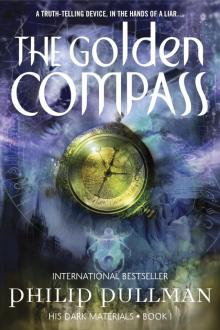 The Golden Compass
The Golden Compass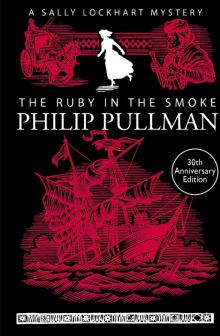 The Ruby in the Smoke
The Ruby in the Smoke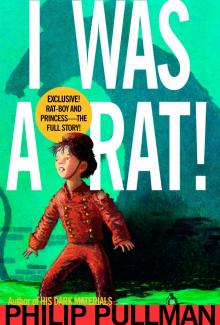 I Was a Rat!
I Was a Rat!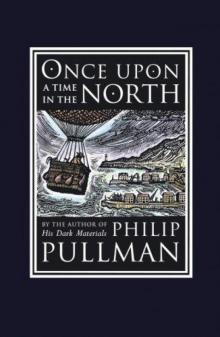 Once Upon a Time in the North
Once Upon a Time in the North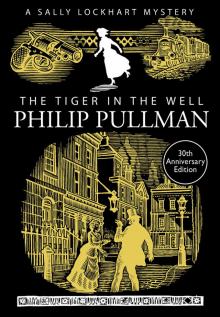 The Tiger in the Well
The Tiger in the Well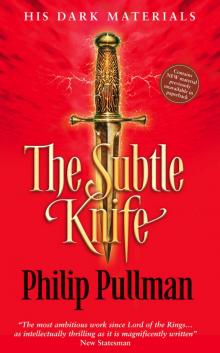 The Subtle Knife
The Subtle Knife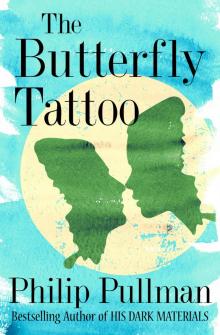 The Butterfly Tattoo
The Butterfly Tattoo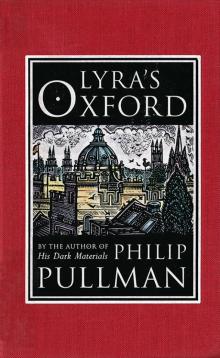 Lyra's Oxford
Lyra's Oxford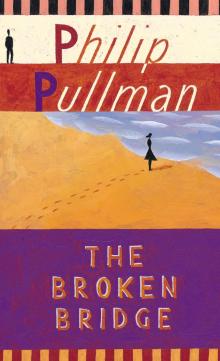 The Broken Bridge
The Broken Bridge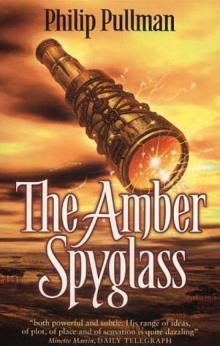 The Amber Spyglass
The Amber Spyglass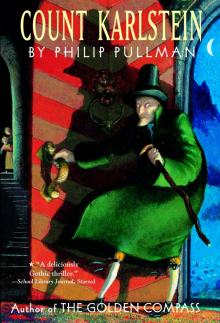 Count Karlstein
Count Karlstein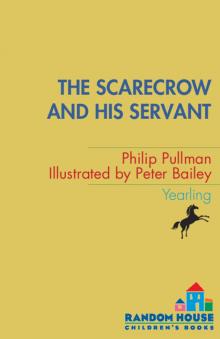 The Scarecrow and His Servant
The Scarecrow and His Servant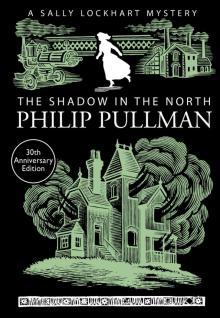 The Shadow in the North
The Shadow in the North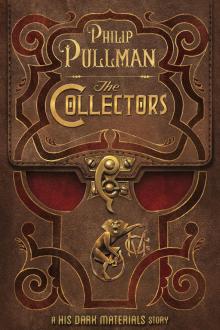 The Collectors
The Collectors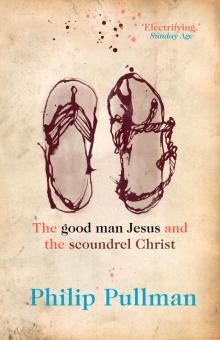 The Good Man Jesus and the Scoundrel Christ
The Good Man Jesus and the Scoundrel Christ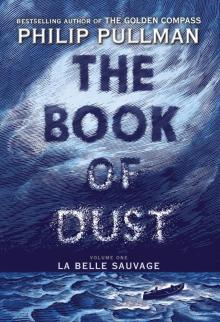 La Belle Sauvage
La Belle Sauvage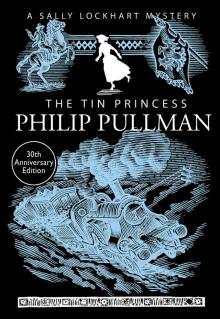 The Tin Princess
The Tin Princess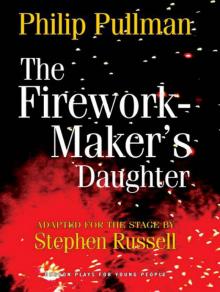 The Firework-Maker's Daughter
The Firework-Maker's Daughter The Book of Dust: The Secret Commonwealth (Book of Dust, Volume 2)
The Book of Dust: The Secret Commonwealth (Book of Dust, Volume 2)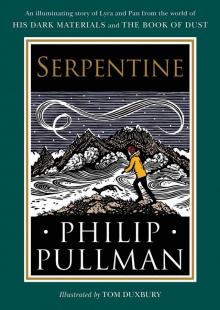 Serpentine
Serpentine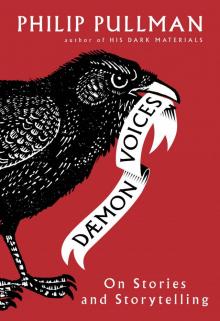 Daemon Voices
Daemon Voices The Amber Spyglass: His Dark Materials
The Amber Spyglass: His Dark Materials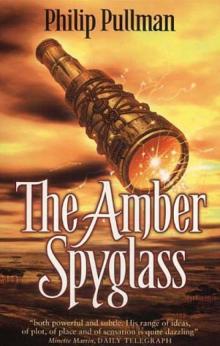 The Amber Spyglass hdm-3
The Amber Spyglass hdm-3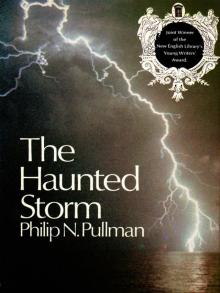 The Haunted Storm
The Haunted Storm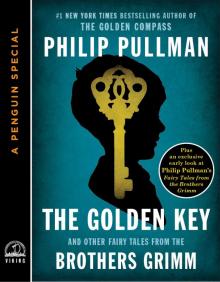 The Golden Key
The Golden Key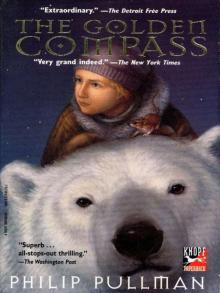 His Dark Materials 01 - The Golden Compass
His Dark Materials 01 - The Golden Compass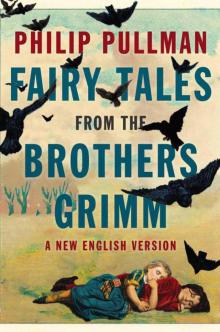 Fairy Tales from the Brothers Grimm: A New English Version
Fairy Tales from the Brothers Grimm: A New English Version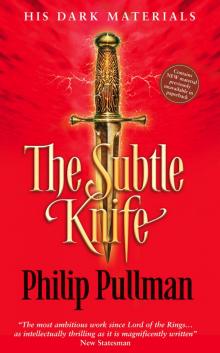 His Dark Materials 02 - The Subtle Knife
His Dark Materials 02 - The Subtle Knife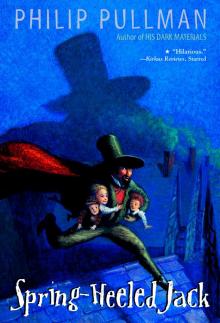 Spring-Heeled Jack
Spring-Heeled Jack The Golden Compass hdm-1
The Golden Compass hdm-1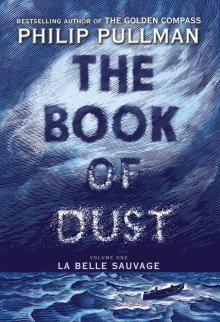 The Book of Dust, Volume 1
The Book of Dust, Volume 1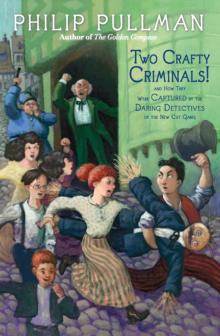 Two Crafty Criminals!
Two Crafty Criminals!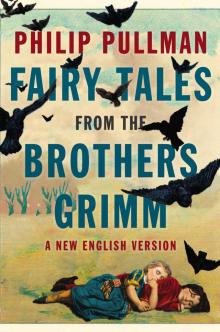 Fairy Tales from the Brothers Grimm
Fairy Tales from the Brothers Grimm The Subtle Knife: His Dark Materials
The Subtle Knife: His Dark Materials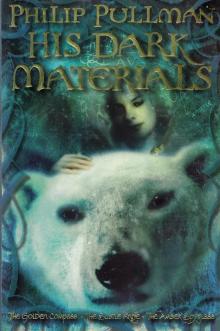 His Dark Materials Omnibus
His Dark Materials Omnibus The Golden Compass: His Dark Materials
The Golden Compass: His Dark Materials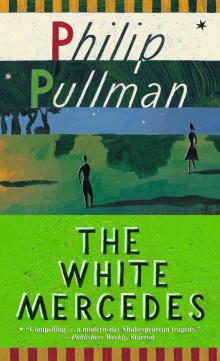 The White Mercedes
The White Mercedes